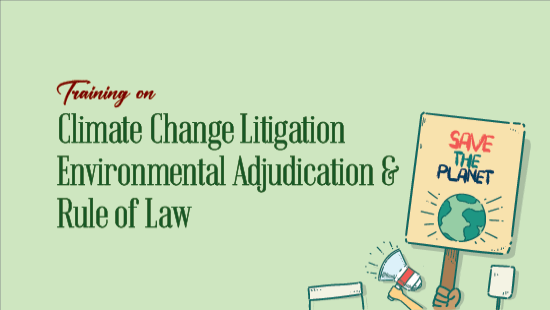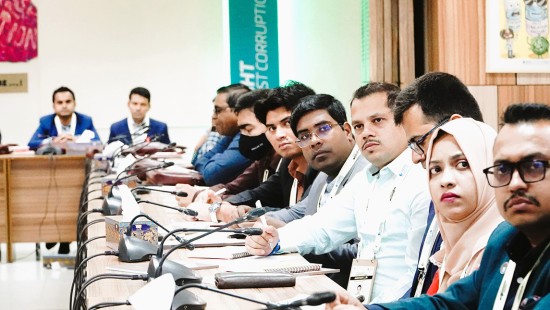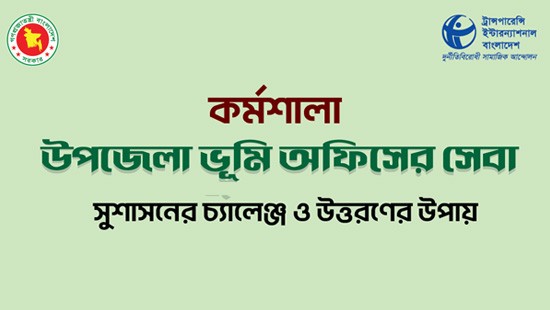Published: 02 May 2024

World Press Freedom Day 2024 underscores the critical role of journalism and freedom of expression amidst the global environmental crisis. Safeguarding press freedom is paramount for effectively tackling environmental challenges and informing the public. It is imperative to enhance media training to ensure accurate reporting on climate and environmental matters, thereby aiding environmental protection and public awareness. These were the focus on the second panel discussion hosted by TIB and its partners in an event to mark the World Press Freedom Day.
A panel discussion titled "Media Defense for Crisis Reporting" marked World Press Freedom Day 2024. The event organized jointly by UNESCO, Transparency International Bangladesh (TIB), and Article 19 brought together media professionals and journalists from Bangladesh, Bhutan, India, the Maldives, and Sri Lanka. Moderated by Mr. Shafiqul Alam, Bureau Chief of Agence France-Presse (AFP) in Dhaka, the discussion delved into strengthening media institutions for crisis reporting. Panelists advocated for increased support to enhance the media's capacity in reporting environmental crises. They also addressed challenges to press freedom in South Asia, highlighting instances of repression, violence, and censorship faced by journalists.

Mr. Alam emphasized the need for justice for journalists covering various crises, including economic, conflict, and environmental issues. Ms. Sabina Inderjit, Vice President of the International Federation of Journalists of India, flagged threats to press freedom due to internet restrictions and media control laws. Ms. Radhika Rao from the Internet Freedom Foundation of India discussed press freedom issues in her country, citing raids on journalists and internet shutdown challenges.
Dr. Iftekharuzzaman, Executive Director of TIB, voiced concerns over insecurity in Bangladesh due to the Cyber Security Act, noting the vulnerability of Bangladeshi media to repression. Ms. Susan Vize, Head of Office and UNESCO Representative to Bangladesh, stressed the pivotal role of journalists in bridging information gaps between scientists, government, and civil society. She emphasized the need for accurate, timely, and comprehensive reporting on environmental issues to facilitate sustainable development.

The panel discussion was characterized by diverse perspectives and lively exchanges, with participants sharing insights and experiences from their respective countries. Despite progress, South Asia grapples with fear, intolerance, and suppression of independent voices, underscoring the persistent challenge of press freedom in the region.






